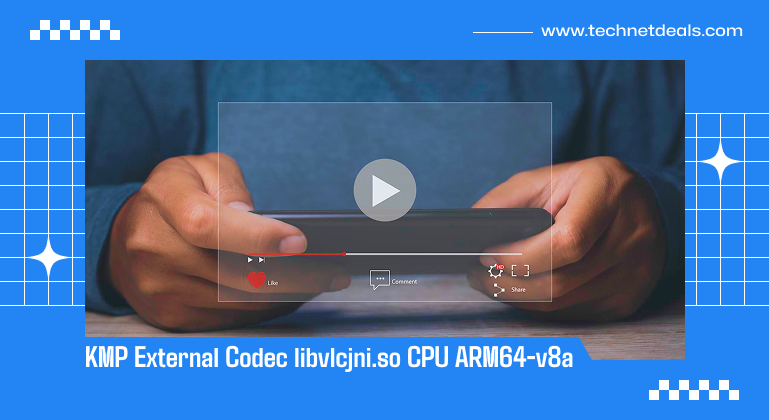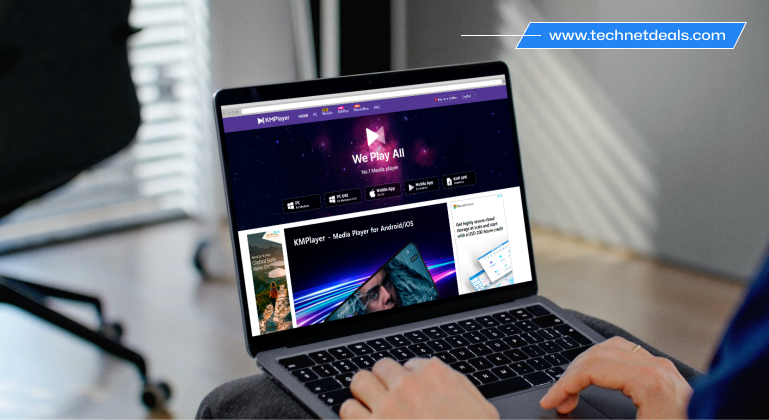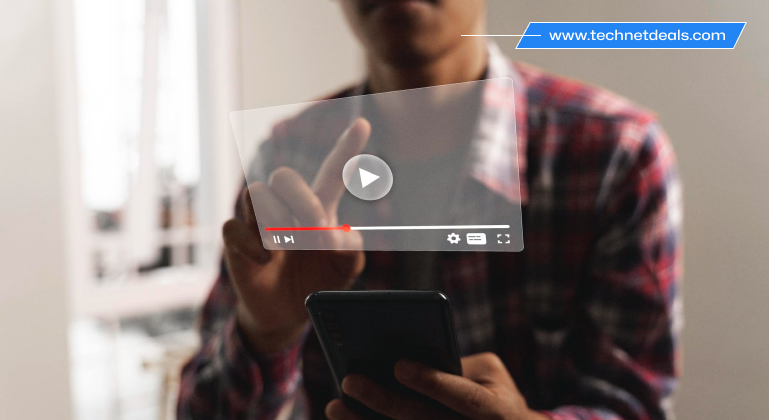
When looking for some of the most versatile media players for Windows and Android, KMPlayer or KMP makes the list. It offers extensive format support and advanced playback features.
However, you might require additional codecs to play audio and video formats properly. KMP External Codec libvlcjni.so CPU ARM64-v8a is an external codec designed to optimize playback.
This helps decode and encode some video files seamlessly, providing an efficient solution for media playback. Moreover, this codec is known to reduce CPU usage and provide longer battery life, improving device performance.
What is KMP External Codec libvlcjni.so CPU ARM64-V8A?

A codec is a software component that allows media players to decode and encode various media files. KMP External Codec libvlcjni.so CPU ARM64 V8A is a codec library designed for ARM64-v8a CPU.
This external codec is used in collaboration with VideoLAN Client or VLC media player. It allows different multimedia formats to play on various devices and platforms and improves audio and video decoding capabilities.
Key Features of This Codec
This particular codec offers various features that make it an important part of media playback. Here are the key features mentioned.
- Improved audio & video playback: This codec supports high-resolution formats like Full HD, HEVC (H.265), and 4K. It supports different multimedia formats like MPEG-4, MP3, and AAC.
- High-performance decoding: This codec library is particularly optimized for ARM64-v8a and allows decoding of audio and video streams efficiently.
- Hardware acceleration: It uses hardware resources to speed up the decoding process and resulting in a smooth playback and also reducing CPU usage.
- Low memory footprint: It is also memory-efficient and ensures optimal performance on devices that have limited resources.
What Are The Advanced Features?

The KMP External Codec libvlcjni.so CPU ARM64-v8a has additional capabilities to improve multimedia processing.
Hardware Acceleration
This codec uses hardware acceleration to improve the decoding performance. This codec library improves performance and lowers CPU usage when you offload some decoding tasks.
This supports smooth playback, especially for high-definition videos with demanding codecs.
This ensures that the decoding is done quickly and efficiently. This provides a smooth user experience without any frame drops. Moreover, it reduces power consumption, as the CPU does not have to work hard.
Compatibility With Other Acceleration Technologies
This codec is particularly made to work with acceleration techniques compatible with ARM64-v8a devices. This makes sure that the codec is compatible with various devices. Moreover, this provides smooth playback regardless of hardware configuration.
Whether it is for hardware video decoding, GPU acceleration, or specialized hardware elements, the library can use the resources efficiently, providing better performance and compatibility.
Network Support and Seamless Streaming
This codec has advanced streaming capabilities, allowing seamless playback for media files from different sources.
- Network protocols: The library supports a huge range of network protocols like RTP, HTTP, RTSP, and a lot more. This allows seamless smedia file streaming over the internet or local networks.
- Dynamic adaptive streaming: It is also compatible with DASH, a popular protocol that adjusts the quality of playback depending on the network’s bandwidth.
Subtle captioning support: The library also supports closed captions and displaying subtitles in different formats. This allows media content to be accessible and provides a better viewing experience.
How to Download And Use It?

There are three ways you can use it. The steps are simple; you can use it on your tablet or smartphone. However, ensure you have an updated KMPlayer app downloaded from the Play Store.
Method 1: Download it from an Official Source
This is the simplest way of all, and does not require you to do much.
- Open KMPlayer on your device.
- Go to Settings and then choose Codec.
- If the system shows a missing codec, then click on Download Codec.
- The app will get the required codec file automatically and install it.
- Restart KMPlayer and check it again.
Method 2: Manually Download & Install It
If the codec does not download automatically, you must download and install it manually.
- Download KMP External Codec libvlcjni.so CPU ARM64-v8a from a reliable source.
- From your mobile security settings, enable installation from unknown sources.
- Find the downloaded file and place it in the KMPlayer codec folder.
- Open KMPlayer and go to Settings. Then, find the decoder and click on Custom Coder.
- Choose the installed file.
- Then restart the app to make the changes.
Method 3: Enable External Codec Use
This is also another simple way of using the codec when you find difficulty playing a video.
- Open KMPlayer and click on the three-dot menu.
- Click on Settings from the menu.
- Click on General from the options that will appear on your screen.
- From the General settings, click on the toggle for “External Codec Use.”
- Restart your phone to apply the changes.
- Launch the KMPlayer app again and go to the Saved videos list. All the unsupported files can be played now.
What Are The Devices Compatible With This Codec?
This is particularly made for ARM64-based processors and is mostly compatible with:
- Android TV devices like the Mi Box, the Nvidia Shield, and the Amazon Fire TV Stick.
- Android phones and tablets like Google Pixel, Samsung, Xiaomi, One Plus, Realme, etc.
- High-performance ARM64-based processors like Exynos, Qualcomm, MediaTek, etc.
If you are unsure whether your device is compatible with ARM 64 V8A, install an app like Android Hardware Info or CPU-Z and verify the CPU architecture.
Troubleshooting Common Issues
You might encounter some common issues when trying to implement this on your device. Here are those mentioned.
Codec Not Detected
- Restart the app after you install the codec.
- Ensure that you installed the right version of the codec.
- Then manually choose Settings, click on Decoder, and then Custom Codec.
No Audio in Videos After Installing
- Make sure the codec is active in the KMPlayer settings.
- Enable HW+Decoder from the settings.
- Update KMPlayer to the latest version.
Video Playback Lagging
- Enable HW+Decoder from the settings.
- Clear the app cache and close all the apps running in the background to free the RAM.
- Use a high-performance device to ensure smooth running.
What Are The Best Alternatives to This Codec?
If you are unable to uninstall or use this, there are other alternatives that may work.
- VLC Media Player
- MX Player
- XPlayer
Wrapping Up!
KMP External Codec libvlcjni.so CPU ARM64-v8a is an amazing codec library designed for ARM64-v8a devices. With the broad format support, optimized decoding, and efficient usage of resources, it ensures a smooth playback experience.
With the advancement of video compression technologies like AV1 and HEVC, media players use built-in codec support. However, codecs like this are essential for legacy formats.
Additional Resources:






